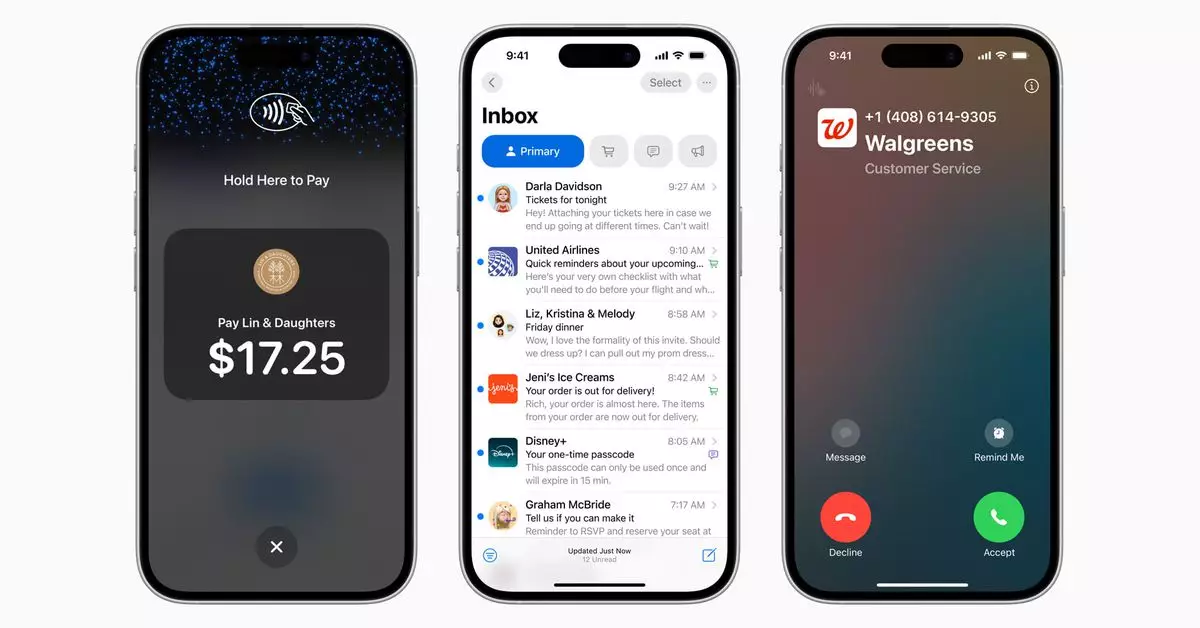In a significant move aimed at empowering businesses, Apple has unveiled plans to allow companies to customize their identities in communications through iPhone devices. This initiative, particularly through the Business Connect tool, sets the stage for brands to establish a more recognizable presence in critical consumer interactions. The announcement, made by Apple on Wednesday, demonstrates a strategic shift not just in branding, but also in how businesses engage with customers across various applications such as Mail, Phone, and Wallet.
Recognizing the overwhelming volume of digital communication today, Apple’s new features come as a timely solution for both businesses and consumers. The introduction of branded mail will enable businesses to attach their logos and names to emails, providing an instant visual cue to recipients. This innovation aims to distinguish important messages from spam or irrelevant content—an aspect critical in an age where inboxes are often flooded with promotional materials. Gmail’s recent enhancements—like verified logos and checkmarks—have paved the way for this feature, positioning Apple to take a more competitive stance in the realm of email authentication and branding.
Additionally, Apple’s forthcoming Business Caller ID option promises to elevate the telecommunication experience. With the ability to display a company’s name and logo during incoming calls, customers can quickly identify the legitimacy of the call without the uncertainty that often accompanies unknown numbers. This proactive measure is particularly useful as spam calls proliferate, allowing users to discern genuine communications from potential scams. The anticipated rollout of this feature next year is sure to offer businesses a pair of trusted eyes in a landscape rife with impersonation and uncertainty.
The broader implications of Apple’s efforts with Business Connect extend beyond mere branding. By streamlining user interactions, Apple is effectively positioning itself as a key player in the local and business search market. The potential to aggregate verified information about businesses could bolster Apple’s competitive edge against established platforms like Google and Yelp, possibly signaling a future where Apple plays a larger role in information dissemination. If Apple chooses to leverage this consumer data for a potential search engine, it could reshape the way users engage with local services.
As Apple prepares to roll out these updates, the focus on enhancing brand visibility and trust cannot be overstated. By facilitating how businesses are represented digitally, Apple is creating a win-win scenario: companies get a validated identity that resonates with consumers, while users enjoy a more refined and trustworthy communication experience. This evolution in branded communication tools underscores Apple’s commitment to not only delivering innovative technology but also fostering an ecosystem where businesses can thrive and consumers can confidently navigate their digital interactions.

